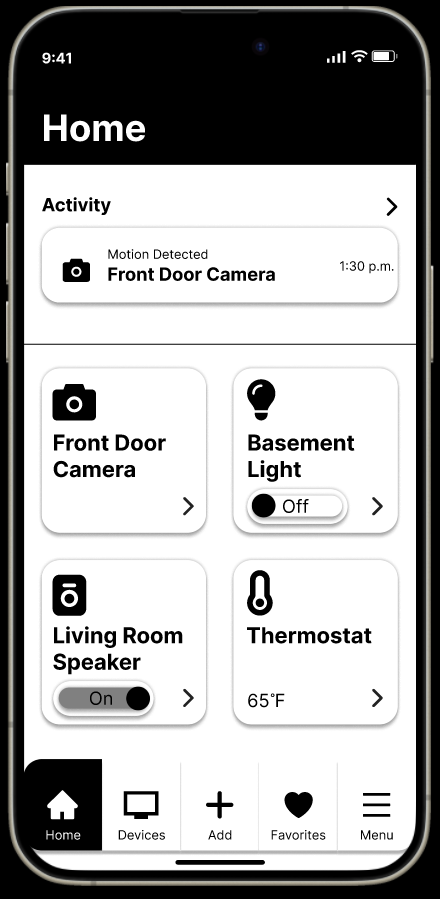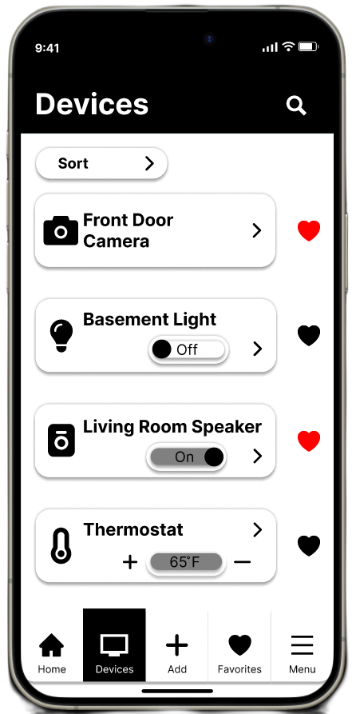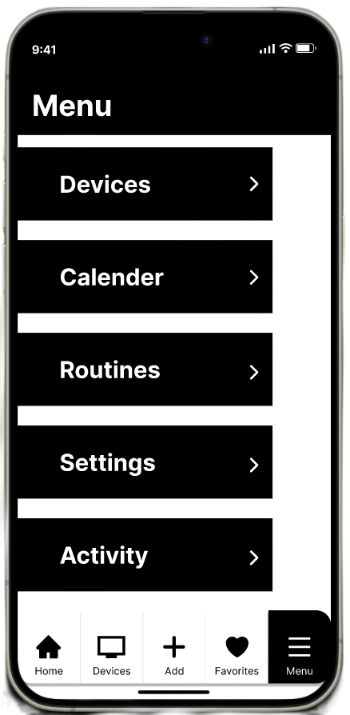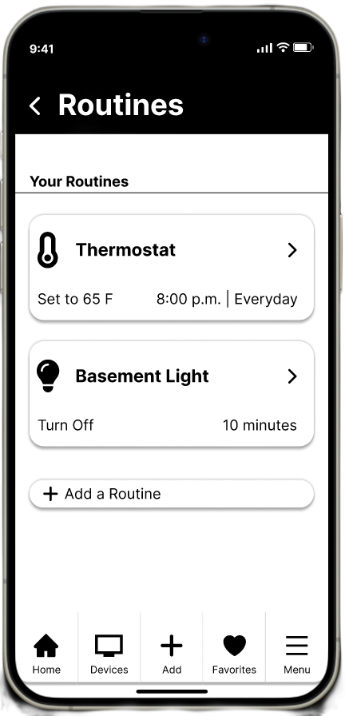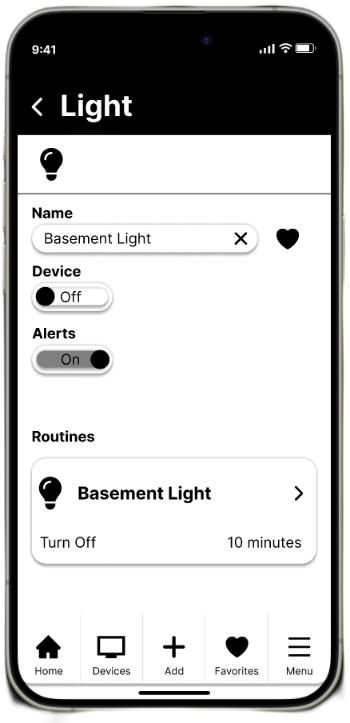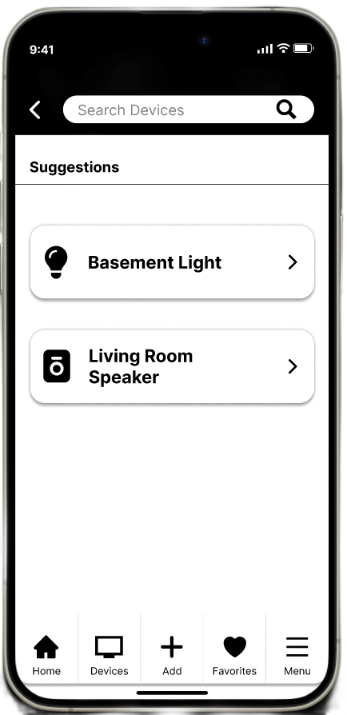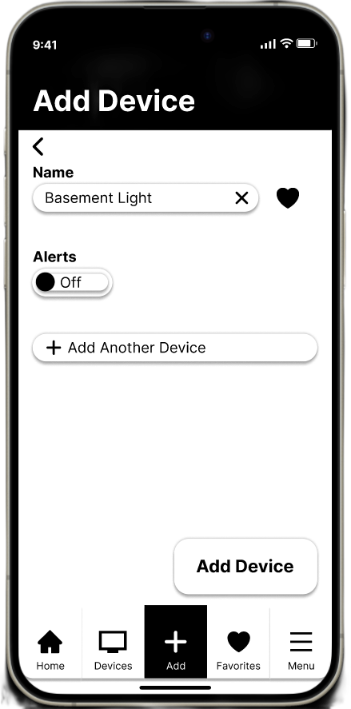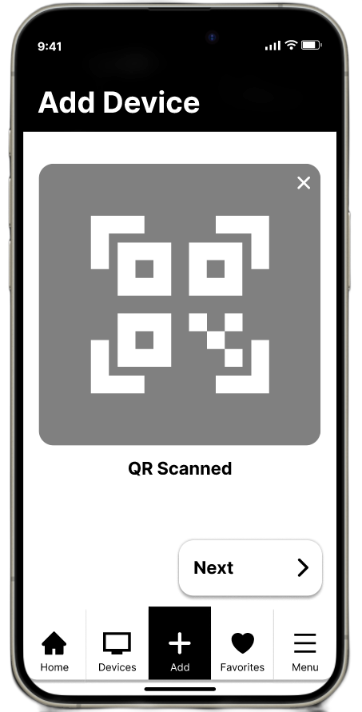IoT Device Management Case Study
Purpose
This project set out to simplify the growing complexity in the Internet of Things (IoT) space by designing a customizable hub for users to manage their smart devices from various brands within a single, intuitive interface. The goal was to eliminate fragmentation. encourage personalization, and enhance user control with their smart devices.
Problem
The Internet of Things (IoT) market continues to evolve and reshape how we interact with technology while presenting a major challenge: complexity through abundance.
Users rely on a multitude of smart products and services from various brands and platforms. The central challenge for this project was to design a centralized and customizable hub for users to control their IoT devices seamlessly, regardless of brand or function.
Solutions
Designed a modular, personalized IoT hub interface that:
Integrates diverse brand devices into a single platform
Allows users to rearrange and customize control modules
Offers intuitive navigation and logical categorization of devices
The solution was rooted in flexibility, control, and ease of use.
My Role
My role involved conducting research and forming a competitive analysis. I evaluated major competitors and brands within the IoT market, identifying their value propositions, functional limitations, and the pain points that users encountered. The analysis went further to discover success assets and weaknesses especially in user control and interface adaptability.
On top of the formal competitor analysis, I conducted a broad market analysis identifying key disruptions, specifically a lack of centralized customization options and intuitive navigation. At the conclusion of this phase, best practices, areas of innovation, and design outlook processes were formulated.
In this process, the overarching goal was to develop solutions independently. With that being said, collaboration was executed by several individuals through the research process to compare competitor insights, discuss innovative gaps, and validate our findings.
Outcomes
Designed a concept aligned with market demand for integrated personalization
Enhanced understanding of user needs in the IoT space
Strengthened research skills around emerging technologies and user behavior
Improved ability to transform complex functionality into simplified, user-first interfaces
User Persona
Wireframes
Process
Home Page
Activity Page
Devices Page
Favorites Page
High-Fidelity Prototype
Menu Page
Camera Page
Search Page
Results Page
Routines Page
Light Page
Speaker Page
Thermostat Page
Add Device Page
Add Page
